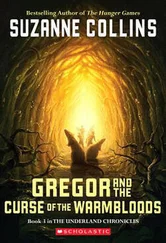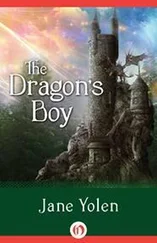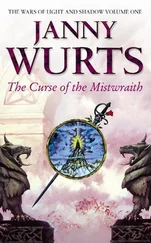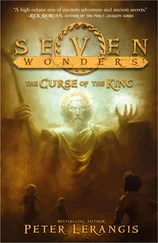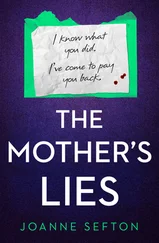At other times he fell into rambling asides that took the audience from the birth of monstrumology in the early eighteenth century (beginning with Bacqueville de la Potherie, the acknowledged father of this most curious of esoteric disciplines) to the present day, with references to obscure personages whose voices had long been stifled in the Dark Angel’s smothering embrace.
“Now, where was I, Will Henry?” he would ask after one of these extended extemporaneities. It never failed that this question came at the precise moment when my mind had wandered to more interesting matters, more often than not to the current weather conditions or the menu for our long-overdue supper.
Unwilling to incur his inestimable ire, I would fumble a reply, blurting the best guess I had, which usually included somewhere in the sentence the name of Darwin, Warthrop’s personal hero.
The ploy did not always work.
“Darwin!” the monstrumologist cried once in reply, striking his fist into his palm in agitation. “Darwin! Really, Will Henry, what does Darwin have to do with the native folklore of the Carpathians? Or the mythos of Homer? Or Norse cosmology? Have I not impressed upon you the importance of this endeavor? If I should fail in this, the seminal moment of my career, not only will I go down in humiliation and disrepute, but the entire house will fall! The end of monstrumology, the immediate and irrevocable loss of nearly two hundred years of unselfish devotion by men who dwarf all those who came after them, myself included. Even me, Will Henry. Think of that!”
“I think it was . . . You were talking about the Carpathians, I think . . .”
“Dear Lord! I know that, Will Henry. And the only reason you know that is I just said it!”
As hard as he threw himself into the task of his oral presentation, more assiduously still did he labor over his written reply, composing at least twelve drafts, each of them in his nearly illegible scrawl, and all of which fell to me to transcribe into readable form, for, if the reply had been delivered to the printer’s in its original state, it would undoubtedly have been wadded up and hurled at my head.
Upon the conclusion of my hours of toil, hunching over my desk like a medieval monk with aching ink-stained fingers and itching, burning eyes, the monstrumologist would snatch the product from my quivering grip and compare it to the original, hunting for the slightest error, which, of course, he would invariably find.
At the end of this Herculean effort, after the printer delivered the finished product and there was little left to do (and little left of the monstrumologist, for he must have lost more than fifteen pounds since the project had begun) but wait for that fall’s convocation, he fell into a profound depression. The monstrumologist retreated to his shuttered study, where he brooded in a gloom both actual and metaphysical, refusing to even acknowledge my halfhearted attempts to alleviate his suffering. I brought him raspberry scones (his favorite) from the baker’s. I shared with him the latest gossip gleaned from the society pages (he held a strange fascination for them) and the local doings of our little hamlet of New Jerusalem. He would not be comforted. He even lost interest in the mail, which I arranged for him, unread, upon his desk, until the desk’s surface was covered as thickly as the forest floor by the leaves of autumn.
Near the end of August, a large package arrived from Menlo Park, and for a few moments he was his old self again, delighting in the gift from his friend. Enclosed with it was a brief note: All my thanks for your help with the design, Thos. A. Edison . He played with the phonograph for the space of an hour, and then touched it no more. It sat upon the table beside him like a silent rebuke. Here was the dream made real of Thomas Edison, a man who was destined to be lauded as one of the greatest minds of his generation, if not in all history, a true man of science whose world would be forever changed for his having lived in it.
“What am I, Will Henry?” the doctor asked abruptly one rainy afternoon.
I answered with the literalness of a child, which, of course, at the time I was.
“You’re a monstrumologist, sir.”
“I am a mote of dust,” he said. “Who will remember me when I am gone?”
I glanced at the mountain of letters upon his desk. What did he mean? It seemed he knew everyone. Just that morning a letter had arrived from the Royal Society of London. Sensing he meant something deeper, I answered intuitively, “I will, sir. I will remember you.”
“You! Well, I suppose you won’t have much choice in the matter.” His eyes wandered to the phonograph. “Do you know it was not always my desire to be a scientist? When I was much younger, my great ambition was to be a poet.”
If he had stated that his brain were made of Swiss cheese, I would not have been more flabbergasted.
“A poet, Dr. Warthrop?”
“Oh, yes. The desire is gone, but the temperament, you may have noticed, still lingers. I was quite the romantic, Will Henry, if you can imagine it.”
“What happened?” I asked.
“I grew up.”
He placed one of his thin, delicate fingers upon the ceresin cylinder, running the tip along the pits and grooves like a blind man reading braille.
“There is no future in it, Will Henry,” he said pensively. “The future belongs to science. The fate of our species will be determined by the likes of Edison and Tesla, not Wordsworth or Whitman. The poets will lie upon the shores of Babylon and weep, poisoned by the fruit that grows from the ground where the Muses’ corpses rot. The poets’ voices will be drowned out by the gears of progress. I foresee the day when all sentiment is reduced to a chemical equation in our brains—hope, faith, even love—their exact locations pinned down and mapped out, so we may point to it and say, ‘Here, in this region of our cerebral cortex, lies the soul.’”
“I like poetry,” I said.
“Yes, and some like to whittle, Will Henry, so they will always find trees.”
“Have you kept any of your poems, Doctor?”
“No, I have not, for which you should be grateful. I was horrible.”
“What did you write about?”
“What every poet writes about. I fail to understand it, Will Henry, your uncanny gift for seizing upon the most tangential aspect of the issue and drubbing it to death.”
To prove him wrong, I said, “I will never forget you, sir. Ever. And neither will the whole world. You’ll be more famous than Edison and Bell and all the rest put together. I’ll make sure of it.”
“I will pass into oblivion, to the vile dust from whence I sprung, unwept, unhonored, and unsung. . . . That is poetry, in case you’re wondering. Sir Walter Scott.”
He stood up, and now his countenance shone with the profundity of his passion, at once terrifying and strangely beautiful, the look of the mystic or the saint, transported from the constraints of ego and all fleshy desires.
“But I am nothing. My memory is nothing. The work is everything, and I will not see it mocked. Though the cost be my very life, I will not let it pass, Will Henry. If von Helrung should succeed—if we allow our noble cause to be reduced to the study of the silly superstitions of the masses—so that we jibber-jabber on about the nature of the vampire or the zombie as if they sat at the same table as the manticore and the Anthropophagus , then monstrumology is as dead as alchemy, as ridiculous as astrology, as serious as one of Mr. Barnum’s sideshow freaks!
“Grown men, educated men, men of the highest sophistication and social refinement, cross themselves like the most ignorant peasant when they pass this house. ‘What queer and unnatural goings-on in there, the house of Warthrop!’ When you yourself can attest that there is nothing queer or unnatural about it, that what I deal in is altogether natural, that if it weren’t for me and men like me, these fools might find themselves choking on their own entrails or being digested in the belly of some beast no more queer than the lowly housefly!”
Читать дальше

